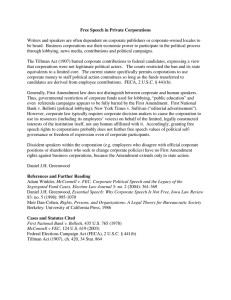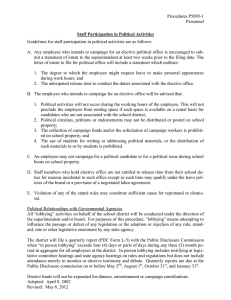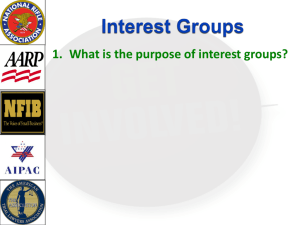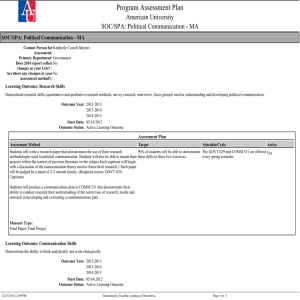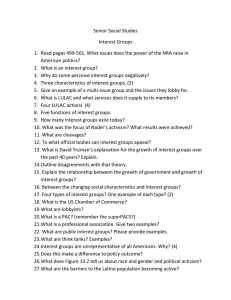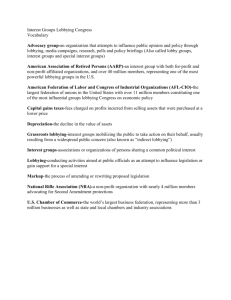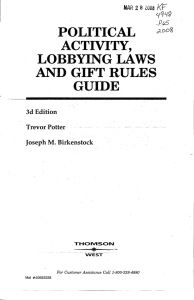Types of public policy
advertisement
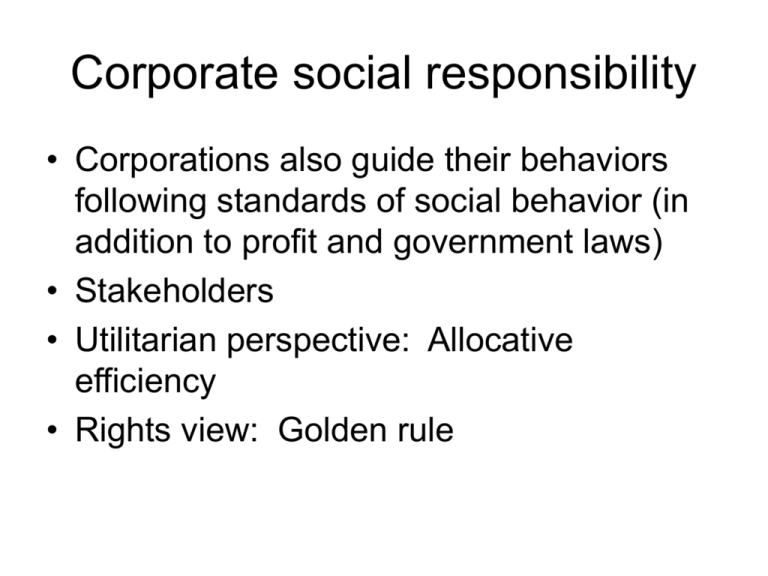
Corporate social responsibility • Corporations also guide their behaviors following standards of social behavior (in addition to profit and government laws) • Stakeholders • Utilitarian perspective: Allocative efficiency • Rights view: Golden rule 11:30 class 1:00 class Chapter 7: business, interest groups, and political influence • Tactics and practices on how public policy gets done. • In comparison with the market we expect more cooperation instead of competition between groups and individuals The public interest • It is an abstraction about what advances the welfare of the population. • People defend or oppose policies in the name of the public interest. • The public interest cannot be found by adding up private interests to find the most widely acceptable alternative. • Policy making can become a question of might more than right, of who gets to control the policy agenda. Group based politics • Most of the time, people get involved only when angry • There are many interest groups working to influence the policy making process • Interest group competition • Narrow interests competing Types of interest groups • Business – Large corporations independently. Small companies and corporations through alliances – Peak association: general purpose business group – Trade association • Workers • Public interest Is business on top? • More than in other countries • Companies have money • It is cheaper to organize smaller than larger groups • But interest of corporations are fragmented • Most likely in narrow questions that attract little public attention Tactics: Public issues management • Public communication • Public policy research institutes or think tanks • Philanthropy • Lobbying The mechanics of lobbying • Having information that elected officials and their staff want or need • Campaign donations The information campaign • Either behind close doors and increasingly through public grassroots organizing campaigns. • Lobbying would be OK if lobbying groups were really fragmented and there was competition. Campaign donations • Directly to candidates rather limited. • Independent expenditures Interest groups “quiz” • Which one is the phony one?


